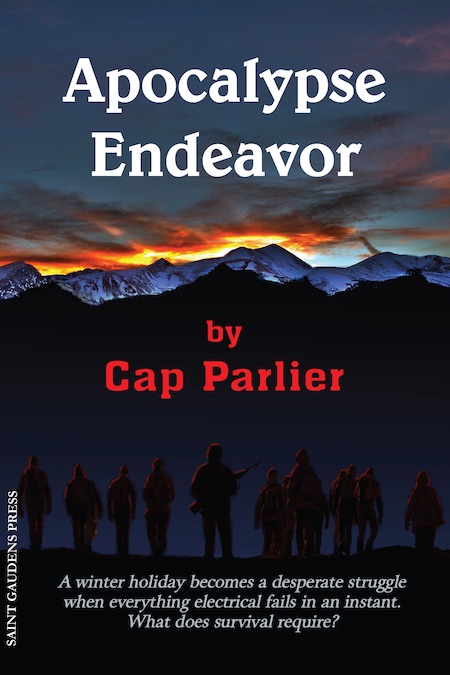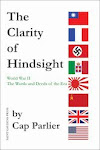Update from the Heartland
No.497
20.6.11 – 26.6.11
Blog version: http://heartlandupdate.blogspot.com/
To all,The follow-up news items:
-- We have another opinion regarding the so-called “war on drugs” [119 & sub], and especially the Global Commission’s “War on Drugs” report [496].
“Call Off the Global Drug War”
by Jimmy Carter [former president and Op-Ed Contributor]
New York Times
Published: June 16, 2011
http://www.nytimes.com/2011/06/17/opinion/17carter.html
I have seen mostly derisive comments about Jimmy Carter rather than the subject matter at hand, to the point that more than a few have pronounced that if Jimmy said it, it must be wrong. I am not a particular fan of Jimmy’s performance as President, but in this, I urge each and every one of us to read carefully his opinion. In his topic, I happen to agree with Jimmy. However, like the half-step of the Global Commission, Jimmy misses or ignores the basic axiom of human activity in a free society – the individual citizen will not alter his behavior until he convinces himself he must change. Throwing precious Treasury funds at treatment programs rather than or even in addition to incarceration will be just as much of a failure and waste of the People’s money that the so-called “war on drugs” has been. An individual consumer will not seek or respond to treatment no matter the inducement until he is ready to kick the habit. Please let us not fool ourselves.
-- The current Director of Central Intelligence (DCI) Leon Edward Panetta, 72, [489] has been confirmed by the Senate with a rare 100-0-0-0(0) vote, to replace Bob Gates as Secretary of Defense.
-- Fourth Amendment restrictions and impairment [149 & sub]:
“Free to Search and Seize”
by David K. Shipler -- Op-Ed Contributor
New York Times
Published: June 22, 2011
http://www.nytimes.com/2011/06/23/opinion/23shipler.html?_r=1&nl=todaysheadlines&emc=tha212
Kentucky v. King [563 U.S. ___ (2011)] [495] is simply the latest and undoubtedly not the last example to support Shipler’s opinion.
-- After the shot across the bow from Speaker Boehner and the House regarding the President’s continued support of Operation UNIFIED PROTECTOR {H.RES.292 [496]} three week’s ago, the House attempted two additional steps. 1.) The vote on H.J.RES.68: Authorizing the limited use of the United States Armed Forces in support of the NATO mission in Libya failed [House: 123-295-0-13(1)]. 2.) They also failed to pass H.R.2278: To limit the use of funds appropriated to the Department of Defense for United States Armed Forces in support of North Atlantic Treaty Organization Operation Unified Protector with respect to Libya, unless otherwise specifically authorized by law [House: 180-238-0-13(4)]. The President continues to maintain that U.S. participation in Libya does not violate the War Powers Act of 1973 (AKA War Powers Resolution) [PL 93-148; H.J. Res. 542] [344].
Circa 22:30 [R] EDT, Friday, 24.June.2011, the New York State Senate passed A8354-2011 – the Marriage Equality Act. An hour later, Governor Andrew Mark Cuomo walked into the Senate chamber and at 23:55 [R] EDT, signed into law A8354-2011, enabling all residents to marry the person of their choice. New York becomes the seventh jurisdiction to allow same-sex marriage, following Connecticut, Iowa, Massachusetts, New Hampshire, Vermont, and the District of Columbia. California’s law remains under judicial contest and appeal – Perry v. Schwarzenegger [USDC CA(ND) no. C 09-2292 VRW (2010)] [452]. The journey toward equal rights for all citizens took another step forward. We remain a long way from the objective.
Another perspective:
“Marriage Is a Mixed Blessing”
by Katherine M. Franke– Op-Ed Contributor
New York Times
Published: June 23, 2011
http://www.nytimes.com/2011/06/24/opinion/24franke.html?src=me
On 2.July.2007, Governor Janet Napolitano of Arizona (now, Secretary of Homeland Security) signed into law the Legal Arizona Workers Act of 2007 (AKA Employer Sanctions Law) [HB 2779; Ariz. Rev. Stat. Ann. §§23-211, 212, 212.01]. The Chamber of Commerce immediately and preemptively challenged the state law. [SIDE NOTE: The implicit message in the Chamber of Commerce “objection” is business wants cheap labor no matter what the consequences.] This case precedes the better-known controversy surrounding Arizona’s SB1070 law [436] and the associated judicial review in United States v. Arizona [USDC AZ case 2:10-cv-01413-SRB (2010)] [450]. The HB 2779 law requires Arizona employers check the authority-to-work status of all new employees using the Federal E-Verify system. The constitutional issue before the Supremes in this case – Chamber of Commerce v. Whiting [563 U.S. ___ (2011); no. 09-115] – centered upon the state’s mandatory use of E-Verify contrary to the preemptive provisions of the Immigration Reform and Control Act of 1986 (IRCA) [PL 99-603]. Congress created the E-Verify system in 1996, as a pilot program available on a voluntary basis to only ten states. The system was extended in 2001. The Basic Pilot Program Extension and Expansion Act of 2003 [PL 108-156] extended E-Verify to all 50 states but left it as a voluntary process, thus the conflict and challenge. Chief Justice John Roberts wrote for the 5-3 majority (Kagan did not participate) and affirmed the 9th Circuit’s ruling in favor of Arizona’s HB 2779 law. The dissenters offered a variety of arguments, which in my opinion boil down to keeping the states out of immigration enforcement – for better or worse; they suggest the Employment Eligibility Verification Form I-9 is sufficient for authorization validation. The unfortunate reality is the I-9 leaves enforcement almost entirely in the hands of employers, who have a vested interest in the impression of legality. The Federal government’s creation of a classic Catch-22 with immigration enforcement is not likely to be reconciled by Congress. The Judicial branch has taken the next step in allowing the states to regain some modicum of control over their fate with respect to illegal immigration. So it is, so it shall be.
On 7.January.1991, Rear Admiral William Morris, the Navy's contracting officer for the A-12 Avenger development program, terminated the contract for default. The U.S. Government (USG) declared the prime contractor, McDonnell Douglas Corporation, irretrievably over budget and behind schedule, cancelled the contract, and sought repayment of US$1.35B in “progress payments for work never accepted” by the Navy. The company counter-claimed the USG withheld “superior knowledge” in the groundbreaking, carrier-based, stealth aircraft project. After a string of actions before the Court of Federal Claims (CFC), the case made it to the Supreme Court – General Dynamics Corp. v. United States [563 U.S. ___(2011); no. 09-1298]. The Court vacated the CFC judgment and remanded for further consideration. The Supremes said the USG could not hide behind the state secrets doctrine or withhold its “superior knowledge” in stealth technology, and then default a contractor for inadequate performance. The unanimous Court sought further constraints on the USG’s use of the state secrets doctrine established in Totten v. United States [92 U.S. 105 (1875)] [215] and reinforced by United States v. Reynolds [345 U.S. 1 (1953)] [306]. My attention focused on this case for curiosity regarding the A-12 program and the USG’s invocation of the state secrets doctrine. Interesting case, but unfortunately, it will likely be decades before we might learn the technical details in this failed stealth program.
News from the economic front:
-- The Open Market Committee of the Federal Reserve’s policy board voted unanimously to maintain its benchmark interest rate near zero “for an extended period,” beyond the two-year-old commitment. The Fed statement said, “The economic recovery is continuing at a moderate pace, though somewhat more slowly than the committee had expected.” They added, “The committee expects the pace of recovery to pick up over coming quarters and the unemployment rate to resume its gradual decline.” The Fed also announced they would complete the planned purchase of US$600B in Treasury securities next week as scheduled, and then suspend its three-year-old economic rescue campaign.
-- The International Energy Agency and the Obama administration jointly announced that they would release 60 million barrels of oil into the market over the next 30 days, with half coming from the emergency U.S. Strategic Petroleum Reserve, citing the loss of oil production as a result of the conflict in Libya and the upcoming energy demands of the summer season. The move came amid signs that rising fuel prices are dampening the economic recovery.
-- Using mortgage data filed with banking regulators, the Wall Street Journal reported the “percentage of mortgage applications rejected by the nation's largest lenders increased last year, spotlighting how banks' cautious lending practices are hampering the nascent housing market recovery.” “In all, the nation's 10 largest mortgage lenders denied 26.8% of loan applications in 2010, an increase from 23.5% in 2009.”
Comments and contributions from Update no.496:
Comment to the Blog:
“While I cannot condone vandalism even in opposition to Westboro Baptist, I also cannot condone Westboro Baptist’s actions.
“I will be brief about Rep. Weiner. (1) He has done nothing that cannot be displayed on national TV with children in the room. (2) He was a strong progressive voice before the current nonsense began. (3) He has a very nice torso.
“On the ruling requiring California to make its prison population 137.5% or less of the prisons’ capacity: this does not give courts anything like direct supervision of the prison system. It merely enforces the prohibition on cruel and unusual punishment. California can meet the requirement any way it likes. If California was still the leading state it once was, they could choose to increase their prison system’s capacity. The predecessors of the Tea Party got California into this mess by prohibiting reasonable taxation (Prop 13). They need not complain about getting what they wanted.
“Also, we may hope this will add fuel to the fire for changing drug laws. After, if possession of marijuana or some other drug is a felony, that increases the prison population very quickly.”
My reply to the Blog:
Re: Westboro. I have voiced my disdain with strong words for Freddie Phelps and his minions. I find his vitriol as repugnant as the Wahhabist or Salafist fundamentalist dogma, so I am clearly neither a fan nor a supporter. Likewise, I condemn Phelps, his spawn, and the activities of the Westboro Baptist Church. However, I believe the Supremes got it right in Snyder v. Phelps [563 U.S. ___ (2011); no. 09-751] [481]. Freedom means tolerating the really regrettable choices of others.
Re: Weiner. Well said, and ‘nuf said.
Re: Plata ruling [496]. Life is choices. California must make hard choices. The Supremes stated it simply – the Constitution protects criminals from cruel & unusual punishment by the State.
Re: “war on drugs.” Usage must be decriminalized. Supply must be regulated. Release user inmates. Disband & close the DEA. Transform our prohibition laws from punishment to protection of the innocents and treatment for those who truly seek sobriety. Then again, almost anything we do to abandon the foolish “war on drugs” will be better than what we have endured for the last 40 years.
My very best wishes to all. Take care of yourselves and each other.
Cheers,
Cap :-)




















